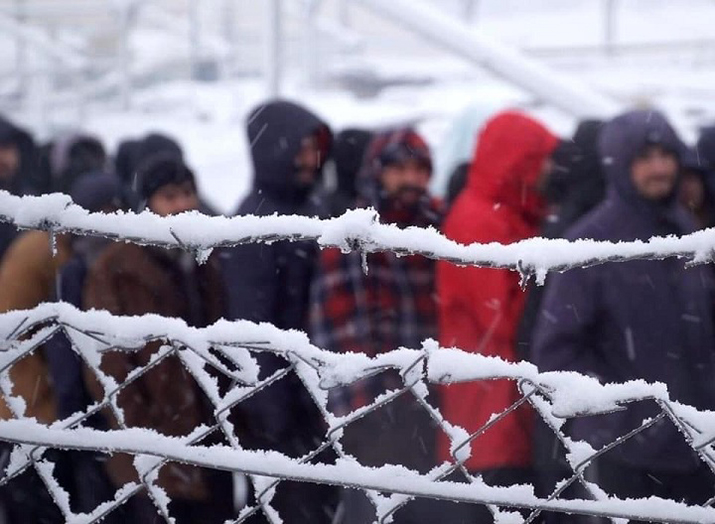THE BALKAN ROUTE
HUNDREDS OF ASYLUM SEEKERS BLOCKED BETWEEN BOSNIA AND HERZEGOVINA AND CROATIA
The minimum living space deemed necessary for a person is considered to be three square meters. In Italian prisons this is the norm. In the tents of the Lipa refugee camp, it is most certainly not. Living cramped together is the "normal" condition. It's snowing, the temperatures have dropped below zero, you can warm up with an electric heater or by staying close. Few masks. Covid is not top priority. The newspapers cover it from time to time but it’s old news since hundreds of asylum seekers have been stuck for quite some time in this small town in Bosnia and Herzegovina, near the border to Croatia, which in those parts represents the gateway to the European Union. At the end of December, the camp burned down and now approximately nine hundred people live in makeshift shelters, while just as many have moved to other areas of the region, but still have no better accommodation.
The Lipa refugee camp was destroyed by a fire and the refugees are living in tents under the snow
Yet the so-called "Balkan route", which has become the main access route for refugees to the Old Continent since 2015, should be closed. For just over a year, hundreds of thousands of people, mostly from Syria, Iraq and Afghanistan, arrived in Europe via Greece, Macedonia, Serbia, Croatia, Slovenia and Austria. Since March 2016, however, the border has become a wall following the agreement between the European Union and Turkey.
The result was not to stop the desperate fleeing wars but was as it turned out to only make their journey more dangerous and more expensive. Barbed wire is not enough to discourage those who cannot stay where they are because they risk their lives. Today around 130,000 people are stranded in refugee camps in Greece, North Macedonia, Albania, Bosnia and Herzegovina, Serbia and Croatia. They often got there by relying on traffickers. The only way they had.
The European Union allocates funds for humanitarian purposes but prevents migrants from entering
Almost everyone would like to seek asylum from the EU, but cannot as they are rejected by the Croatian border police, oftentimes with methods judged violent by numerous non-governmental organizations. Bosnia and Herzegovina, a state in severe economic difficulty and intertwined with ethnic tensions, does not seem capable of dealing with the crisis. As a consequence, the difficulties, as always, radicalize the various positions and some have begun to interpret the migratory flow as a "Muslim invasion". At the beginning of January, Brussels announced that new funding would be added to previous contributions thereby bringing the total to 13.8 million euro since 2018. But money is not enough to solve the crisis, politics is needed.







